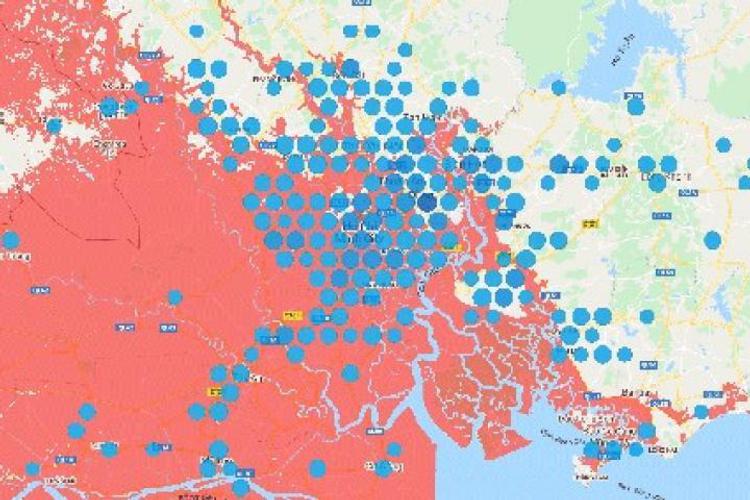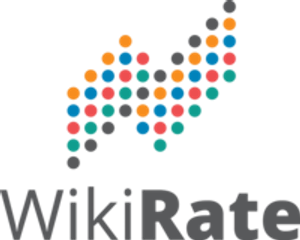Open Supply Hub provides a unique data-set for this work: an open data platform that anyone can access that is also wide and deep enough to cover all of the locations in their research, and with thousands of data points in those regions.
OS Hub data used to map which apparel facilities will be underwater in 2030
The team at the Global Labor Institute, an initiative of the Cornell University School of Industrial and Labor Relations, was interested in the scope of apparel brands' sustainability strategies for a new paper on the post-COVID future of the apparel industry. They were especially looking to understand whether these strategies were inclusive of workers and suppliers, and what impacts were being considered in relation to these stakeholders. They knew from past field work that flooding and extreme heat from climate breakdown were disrupting production and livelihoods in apparel hubs like Phnom Penh, Dhaka and Ho Chi Minh City. For this new paper, they needed to be able to plot apparel production against sea-level and heat projections in these places.
Open Supply Hub provided a unique data-set for this work: an open data platform that anyone can access that is also wide and deep enough to cover all of the locations in their research, and with thousands of data points in those regions.
Their analysis overlaid OS Hub data on sea-level projections from Climate Central for a new look at how flooding threatens production, new investments and countless jobs in the fashion industry’s production center hot spots. The resulting maps showed gripping results piquing the interest of mainstream media.
The alternative to using OS Hub data—building a factory location data set of their own—was unthinkable, due to the time, money, and data access it would require.

This analysis using OS Hub data has appeared in media stories in the U.S., Europe and Asia, lectures to undergraduates, debates with industry leaders and discussions with policy-makers.
The maps developed through this research are already being used in the industry, as well. For example, new factory investments that aim for sustainability now have a new threshold to cross: will they be underwater in 2030?
Read the full research paper and coverage of the research in Reuters.

Housed in the Cornell University School of Industrial and Labor Relations, the Global Labor Institute (GLI)—formerly the New Conversations Project—is dedicated to independent quantitative research and action on a new generation of strategies that the evidence says measurably improves labor conditions for large numbers of workers in global production.


